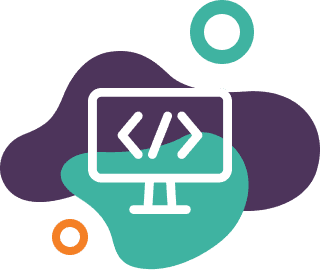Artificial Intelligence (AI)

What is Artificial Intelligence?
Artificial Intelligence (AI) refers to the development of computer systems capable of performing tasks that typically require human intelligence. These tasks include reasoning, learning, problem-solving, understanding language, and visual perception. By leveraging large datasets and complex algorithms, AI systems can simulate human-like decision-making and improve their performance over time, making them fundamental for a wide array of applications, from healthcare to finance.
Types of AI
AI can be broadly classified into two categories:
Narrow AI
Also known as Weak AI, this type focuses on performing specific tasks. For example, voice assistants like Siri or Alexa, and recommendation algorithms used by streaming services, are examples of Narrow AI. These systems are highly specialized but lack general intelligence beyond their defined functions.
General AI
General AI, or Strong AI, refers to systems with generalized human cognitive abilities, capable of learning and performing tasks across a wide range of domains. However, achieving General AI remains a theoretical goal and has not been fully realized.
How Does AI Work?
AI systems function through complex algorithms that allow machines to learn from data. Key technologies behind AI include:
Machine Learning (ML)
A subset of AI, Machine Learning enables systems to identify patterns in data and improve their performance over time without being explicitly programmed. It’s widely used in predictive analytics, recommendation engines, and fraud detection.
Deep Learning
A more advanced form of ML, deep learning uses artificial neural networks that mimic the human brain's structure to process vast amounts of data. It’s responsible for major breakthroughs in image recognition, natural language processing, and self-driving cars.
Natural Language Processing (NLP)
NLP allows AI systems to understand and generate human language, making applications like chatbots and translation services possible.
Applications of AI
AI is transforming industries across the globe. Here are only few examples:
Healthcare: AI-powered tools assist in diagnosing diseases, analyzing medical images, and personalizing treatment plans.
Finance: AI systems detect fraudulent transactions, automate trading, and provide personalized financial advice.
Autonomous Vehicles: Self-driving cars use AI to navigate roads, process sensor data, and make real-time decisions.
Customer Service: AI chatbots and virtual assistants enhance user experiences by handling routine inquiries and support tasks.
The Future of AI
As AI technology advances, its potential to revolutionize industries continues to grow. However, ethical concerns regarding data privacy, bias, and the potential loss of jobs due to automation are ongoing discussions. The challenge is to develop AI in a way that benefits society while mitigating risks.